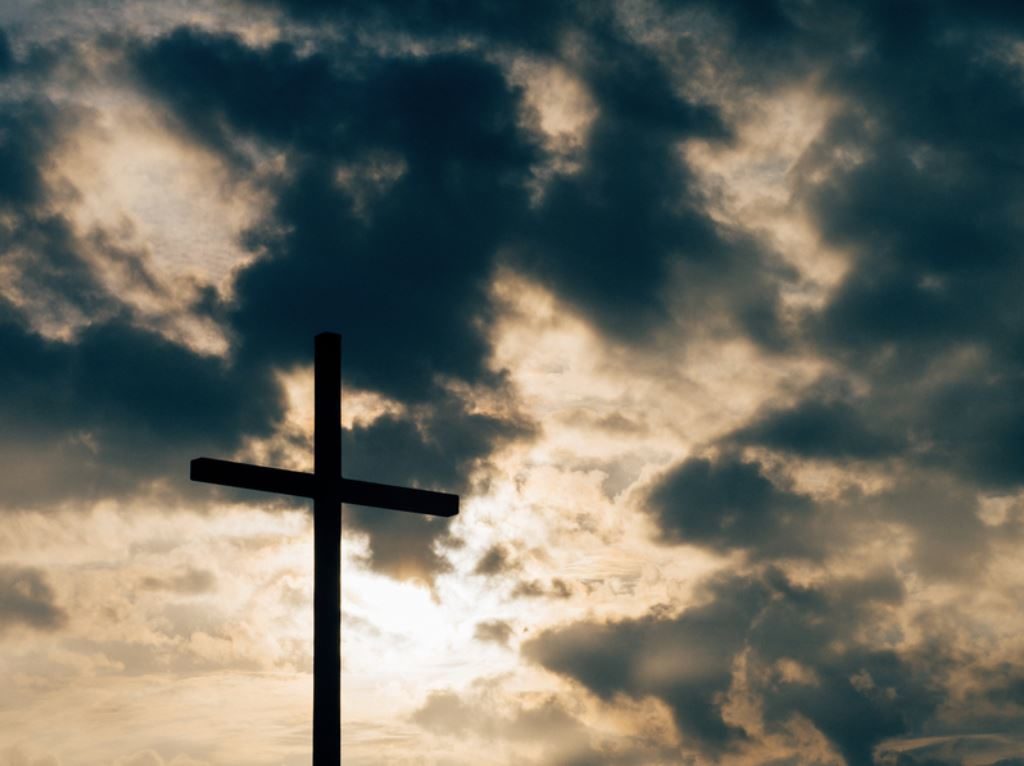The book of Psalms is filled with all kind of emotions. Check out this infographic from the Wayfinding Bible to see the range of emotions the writers of Psalms expressed.

The book of Psalms is filled with all kind of emotions. Check out this infographic from the Wayfinding Bible to see the range of emotions the writers of Psalms expressed.

“What mighty praise, O God, belongs to you in Zion. We will fulfill our vows to you, for you answer our prayers. All of us must come to you. Though we are overwhelmed by our sins, you forgive them all. What joy for those you choose to bring near, those who live in your holy courts.What festivities await us inside your holy Temple.” Psalm 65:1-4, NLT

12-Step Devotional from the Life Recovery Bible
“We sought through prayer and meditation to improve our conscious contact with God, praying only for knowledge of his will for us and the power to carry that out.” Step 11

Most of us need to desire something before we will wholeheartedly seek after it. Until we realize how much God loves us and cares about the details of our lives, we probably won’t have the desire to pray to him. Until we sincerely believe that he has completely forgiven us, we will be ashamed to face him. If we hold to our misconceptions about God, this step will be a formidable chore rather than a joy.

The life of King David should give us hope. After he had come face to face with his own sinfulness, he was able to sing, “What mighty praise, O God, belongs to you in Zion. We will fulfill our vows to you, for you answer our prayers. All of us must come to you. Though we are overwhelmed by our sins, you forgive them all. What joy for those you choose to bring near, those who live in your holy courts. What festivities await us inside your holy Temple” (Psalm 65:1-4). God wants us to be like those who lived and served in his Temple, walking freely into his presence. He wants us to know that we are welcome and valued before him. (See also Matthew 10:29-31.)
God is always present with us and can be a source of joy and happiness for us now. We can look forward to spending time with him and living in his presence every day.
by Evie Polsley, Bible Team Marketing Coordinator
I feel like I am spending most of my life washing things. I’m constantly washing my hands, doing extra laundry, washing more dishes, cleaning counters, doorknobs, light switches. Even cleaning my groceries—heck, anything that comes into the house gets thoroughly scrubbed. And yet it still feels unclean.

As I stand at the sink trying to remember how many times I’ve sung “Happy Birthday,” my mind wanders to the purification laws of the Old Testament. There were certain vessels you had to use, a certain pattern that had to be followed, and only certain people could do certain things. Yet even with all these laws and rituals, the people were never truly clean. There was always some mistake, some sin that needed atoning for, or just plain forgetfulness that kept separating God from his people.
He knew the only thing that could truly purify was the powerful blood of his Son. And so that precious blood was spilled so we could be clean. We no longer need to live in fear of separation from our heavenly Father.

See, we can wash and scrub and try to clean ourselves, but we will be left marred and spotted with sin. It is only Christ’s blood that can remove the stain of sin. As I continue to try to purify my house, my hands, my groceries, I am all the more thankful that I have been washed in the blood of the Lamb. My sins have been washed away, and I am purified through Christ.
“Come now, let’s settle this,” says the Lord. “Though your sins are like scarlet, I will make them as white as snow. Though they are red like crimson, I will make them as white as wool.” Isaiah 1:18, NLT.

“So then, since we have a great High Priest who has entered heaven, Jesus the Son of God, let us hold firmly to what we believe. This High Priest of ours understands our weaknesses, for he faced all of the same testings we do, yet he did not sin. So let us come boldly to the throne of our gracious God. There we will receive his mercy, and we will find grace to help us when we need it most.” Hebrews 4:14-16, NLT
Note from the Christian Basics Bible
Confidence—the assurance we can do or say something—is a valuable asset. When we know we have the ability or resources to do a task, or that right is on our side, we can face the toughest challenges. Of course, some of us are naturally more confident than others; and our confidence can be challenged when we encounter someone who is just as confident as us but takes a different viewpoint.

Hebrews, however, speaks of an entirely different kind of confidence, one that isn’t based on our abilities and knowledge—which will ultimately fail in some situation or other—but rather, one that is based on Christ alone. Such confidence means we can approach God boldly (Hebrews 4:16)—yes, boldly! For it is not dependent on us—our efforts or goodness—but on Christ our great High Priest alone (4:14-15), who not only acted as our priest but who also offered himself as a perfect sacrifice for us (9:11-14, 24-28).
It was through this sacrifice that he removed every trace of sin from us, thus cleansing our conscience (9:14) and removing any barrier to our being able to enter God’s presence and know him as our friend. Because of Christ, God is now utterly approachable (10:19-22).
“As Jesus was walking along, he saw a man who had been blind from birth. ‘Rabbi,’ his disciples asked him, ‘why was this man born blind? Was it because of his own sins or his parents’ sins?’

‘It was not because of his sins or his parents’ sins,’ Jesus answered. ‘This happened so the power of God could be seen in him. We must quickly carry out the tasks assigned us by the one who sent us. The night is coming, and then no one can work. But while I am here in the world, I am the light of the world.’
Then he spit on the ground, made mud with the saliva, and spread the mud over the blind man’s eyes. He told him, ‘Go wash yourself in the pool of Siloam’ (Siloam means “sent”). So the man went and washed and came back seeing!

His neighbors and others who knew him as a blind beggar asked each other, ‘Isn’t this the man who used to sit and beg?’ Some said he was, and others said, ‘No, he just looks like him!’
But the beggar kept saying, ‘Yes, I am the same one!’
They asked, ‘Who healed you? What happened?’
He told them, ‘The man they call Jesus made mud and spread it over my eyes and told me, ‘Go to the pool of Siloam and wash yourself.’ So I went and washed, and now I can see!’
Note from the Boys Life Application Study Bible

A common belief in Jewish culture was that hardships were punishments for sins. But through the healing of the man born blind, Jesus revealed
that some hardships were allowed as a means to glorify God.
We live in a world where good behavior is not always rewarded and bad behavior is not always punished; therefore, innocent people sometimes suffer. Regardless of the reasons for our suffering. Jesus has the power to help us deal with it.
When hard times come, instead of asking, “Why did this happen to me?” or “What did I do wrong?” consider asking God to strengthen you and offer you a deeper perspective on what’s at stake.
Activity from the Hands-On Bible

Read Matthew 21:1-11
As Jesus and the disciples approached Jerusalem, they came to the town of Bethphage on the Mount of Olives. Jesus sent two of them on ahead. 2“Go into the village over there,” he said. “As soon as you enter it, you will see a donkey tied there, with its colt beside it. Untie them and bring them to me. 3If anyone asks what you are doing, just say, ‘The Lord needs them,’ and he will immediately let you take them.”
4This took place to fulfill the prophecy that said,
5“Tell the people of Jerusalem,
‘Look, your King is coming to you.
He is humble, riding on a donkey—riding on a donkey’s colt.’”
6The two disciples did as Jesus commanded. 7They brought the donkey and the colt to him and threw their garments over the colt, and he sat on it.
8Most of the crowd spread their garments on the road ahead of him, and others cut branches from the trees and spread them on the road. 9Jesus was in the center of the procession, and the people all around him were shouting,
“Praise God for the Son of David!
Blessings on the one who comes in the name of the Lord!
Praise God in highest heaven!”
10The entire city of Jerusalem was in an uproar as he entered. “Who is this?” they asked.
11And the crowds replied, “It’s Jesus, the prophet from Nazareth in Galilee.

Parade of Praise
The people in Jerusalem had a parade-like gathering to honor Jesus. What can you do to honor Jesus? Think of a few ways and write them down.
The people cheered Jesus. They laid their coats in the road and shouted praises. Thin of ways you can praise Jesus and write them down.

Now, that you’ve made a plan, get going! Show Jesus he’s more important than anything else in your life.
Get your family together and have your own Jesus-honoring parade. You could even get people who are far away involved by having a video conference call and all being in the parade together!
What are some of your ideas?

Read Psalm 91
“Those who live in the shelter of the Most High
will find rest in the shadow of the Almighty.
2This I declare about the Lord:
He alone is my refuge, my place of safety;
he is my God, and I trust him.
3For he will rescue you from every trap
and protect you from deadly disease.
4He will cover you with his feathers.
He will shelter you with his wings.
His faithful promises are your armor and protection.
5Do not be afraid of the terrors of the night,
nor the arrow that flies in the day.
6Do not dread the disease that stalks in darkness,
nor the disaster that strikes at midday.
7Though a thousand fall at your side,
though ten thousand are dying around you,
these evils will not touch you.
8Just open your eyes,
and see how the wicked are punished.
9If you make the Lord your refuge,
if you make the Most High your shelter,
10no evil will conquer you;
no plague will come near your home.
11For he will order his angels
to protect you wherever you go.
12They will hold you up with their hands
so you won’t even hurt your foot on a stone.
13You will trample upon lions and cobras;
you will crush fierce lions and serpents under your feet!
14The Lord says, “I will rescue those who love me.
I will protect those who trust in my name.
15When they call on me, I will answer;
I will be with them in trouble.
I will rescue and honor them.
16I will reward them with a long life
and give them my salvation.”
Note from the New Believer’s Bible
People often wonder if Christians have guardian angels, which are angels specifically assigned to watch over them. Jesus, speaking of his love for little children, said, “I tell you that in heaven their angels are always in the presence of my heavenly Father” (Matthew 18:10). Even if we don’t have personal angels, both Old and New Testaments do show that angels are active in the lives of believers (for examples, see 1 Kings 19:5; Daniel 6:22; Matthew 18:10; Luke 16:22; Acts 12:7).

Psalm 91 contains some wonderful promises concerning angels: “He will order his angels to protect you wherever you go. They will hold you up with their hands so you won’t even hurt your foot on a stone” (Psalm 91:11-12). Yet these promises are conditional. A relationship with God is necessary to receive his promise of angelic protection: “If you make the Lord your refuge, if you make the Most High your shelter . . .” (Psalm 91:9). Once this condition is met, God will command his angels to rescue his followers from threatening situations, according to his will.
Using the HelpFinder Bible we will discover what the Bible has to say about some questions about fear.
Fears are real and natural, at times more real than that which we fear. Fears may leave us feeling unsettled and insecure, doubting our self-worth, having sleep problems or health problems, and worrying about how tomorrow will treat us. The issues that we want settled are simple—how do we avoid fear when we can, how do we live with it when we must, and what can we learn from it?

When is fear not good?
HEBREWS 10:31 | It is a terrible thing to fall into the hands of the living God.
Fear is terrifying if we have to fall into the hands of God without having made peace with him.
GENESIS 26:7 | He was afraid to say, “She is my wife.”
JOSHUA 17:16 | “The Canaanites . . . have iron chariots. . . . They are too strong for us.”
Fear is not good if it keeps us from doing the things we ought to do. We are not meant to live in fear.
NUMBERS 13:28-31 | “But the people living there are powerful. . . . We even saw giants there! . . . We can’t go up against them! They are stronger than we are!”
Fear is not good when we allow it to distort our view of our great God who is greater than any problem we face.

What can I do when I am overcome with fear? How do I find the strength to go on?
PSALM 46:1-2 | God is our refuge and strength, always ready to help in times of trouble. So we will not fear when earthquakes come and the mountains crumble into the sea.
JOHN 14:27 | “I am leaving you with a gift—peace of mind and heart. . . . So don’t be troubled or afraid.”
God promises to comfort us in our fear if we seek him when we are afraid. We have the confident assurance that he is with us in any circumstance.
DEUTERONOMY 31:6 | “Be strong and courageous! Do not be afraid and do not panic before them. For the Lord your God will personally go ahead of you. He will neither fail you nor abandon you.”
Remind yourself that God is always with you. Your situation may be genuinely threatening, but God has not abandoned you, and he promises to stay with you. Even if your situation is so bad that it causes death, God has not left you but has instead ushered you into his very presence.
EPHESIANS 1:3 | All praise to God, the Father of our Lord Jesus Christ, who has blessed us with every spiritual blessing in the heavenly realms.
Remind yourself that no enemy or adversity can take away your most important blessings— the forgiveness God gave you for your sins, your relationship with him, and your eternal salvation. These remain secure even when your world falls apart.
REVELATION 22:5 | And there will be no night there—no need for lamps or sun—for the Lord God will shine on them. And they will reign forever and ever.
Remind yourself that as a Christian, your destiny is victory! Present hardships and heartaches are temporary. You can go forward with the confidence that you are on the winning side.
PHILIPPIANS 4:6-7 | Don’t worry about anything; instead, pray about everything. Tell God what you need, and thank him for all he has done. Then you will experience God’s peace, which exceeds anything we can understand. His peace will guard your hearts and minds as you live in Christ Jesus.
Pray with a thankful heart, asking God to give you what you need to deal with your fear. Peace is not the absence of fear but the conquest of fear.
Peace is not running away but overcoming.
2 TIMOTHY 1:7 | For God has not given us a spirit of fear and timidity, but of power, love, and self-discipline.
Fear presents an opportunity for you to develop greater faith as you call upon the power of God to help you.
GENESIS 26:7 | When the men who lived there asked Isaac about his wife, Rebekah, he said, “She is my sister.” He was afraid to say, “She is my wife.”
JOSHUA 17:16 | “But all the Canaanites in the lowlands have iron chariots. . . . They are too strong for us.”
Fear must not keep you from doing the things you know are right. You are not meant to live in fear.
P R O M I S E S F R O M G O D
LEVITICUS 26:6 | “I will give you peace in the land, and you will be able to sleep with no cause for fear.”
PSALM 91:11 | “He will order his angels to protect you wherever you go.”
Article from the Swindoll Study Bible
If you could choose any shepherd for your life, who would you pick?

Most of us wouldn’t want a shepherd at all. We want to choose our own path, call our own shots, choose our own life’s partner . . . and then expect God to come along and bless us. Many of us live constantly under the threat of failure. Why? We are sheep—and sheep, by nature, fail. But being a sheep has an upside: When you have nothing to prove, you have nothing to lose. It’s the shepherd’s reputation and success that are at stake. And the good news is that the Lord, as our Shepherd, does not lose His sheep. He leads us on the right paths. Psalm 23 lists several ways God leads us.

First, He leads us to rest. He provides all the rest we need. He does this by leading us alongside still waters. If I relax myself under the control of His marvelous Spirit, my life will be a resting, obedient life. God has a wonderful way of taking us by the ears, slowing us down, showing us green pastures and quiet waters, and calming our anxious thoughts. He’s a master at that. He knows just how to do it.
Second, He leads us through discipline to restoration. Alas, there are stubborn sheep who are determined to go their own way. “All of us, like sheep, have strayed away. We have left God’s paths to follow our own” (Isa. 53:6). In a flock, some sheep are so stubborn that their shepherd has to break one of their legs to keep them from wandering off. Then he splints the leg and carries the sheep until it can walk. It learns to stay close and trust the shepherd to lead. God does something similar with us. “No discipline is enjoyable while it is happening—it’s painful!” (Heb. 12:11). But through the experience, God restores our souls. He changes our inward bent. He administers His rod as an instrument of His love. He does it to guide us in the right paths.

Third, He leads us through darkness. In springtime in the barren Judean Wilderness, the shepherd leads his sheep to areas of new grass. That journey is often treacherous, the path winding through deep ravines with unsure footing and gloomy shadows. The Christian life, too, is filled with pits and deep valleys as we journey toward the life God calls us to. In The Hiding Place, when Betsie ten Boom is dying, she utters to her sister Corrie, “There is no pit so deep that He is not deeper still.” The Christian life includes deep shadows. But the sheep can walk with confidence, knowing that the Shepherd has not yet made His first mistake, and He never will.

Jesus called Himself the Good Shepherd (John 10:11-16). He told His followers, “I am the way, the truth, and the life. No one can come to the Father except through me” (John 14:6). Jesus Christ, who died to pay the complete price for our sins on the cross, is the Way, the Truth, and the Life. He Himself is the right path. Is He your Shepherd? Do you know Him? Only you can answer.
by Mark Taylor, member of the NLT Bible Translation Committee and CEO of Tyndale House Publishers
In the Old Testament, the God of the Hebrews identified himself by the Hebrew name YHWH (sometimes transliterated in English as Yahweh). The meaning of the Hebrew name can be translated literally as “I am who I am” or “I will be what I will be.”
This name was considered to be so holy that ancient readers of the Hebrew text would not say it aloud. Instead, they would use the name Adonai (“God”) in place of YHWH. In Psalm 23:1, for instance, we find this familiar phrase: “YHWH is my shepherd.” But the Hebrew reader would read it aloud as “Adonai is my shepherd.”
Perhaps because of this reticence to pronounce the name YHWH, most English translations of the Old Testament render it as “the Lord.” (Note the use of small caps in this usage.) So Psalm 23:1 is typically rendered in English as “The Lord is my shepherd.”
This method of translating YHWH as “the Lord” goes back as far as the Coverdale translation, which was first published in 1535.
The name YHWH is found 6,828 times in the Hebrew text of the Old Testament. Like most other English translations, the NLT renders YHWH as “the Lord” almost every time. But in a few passages in Exodus, the name itself is being emphasized in the text. In those instances, the NLT renders YHWH as “Yahweh.” These passages are:
Exodus 3:13-16a
13But Moses protested, “If I go to the people of Israel and tell them, ‘The God of your ancestors has sent me to you,’ they will ask me, ‘What is his name?’ Then what should I tell them?”
14God replied to Moses, “I Am Who I Am. Say this to the people of Israel: I Am has sent me to you. 15God also said to Moses, “Say this to the people of Israel: Yahweh, the God of your ancestors—the God of Abraham, the God of Isaac, and the God of Jacob—has sent me to you.
This is my eternal name,
my name to remember for all generations.
16“Now go and call together all the elders of Israel. Tell them, ‘Yahweh, the God of your ancestors—the God of Abraham, Isaac, and Jacob—has appeared to me.’”
Exodus 6:2-3
2And God said to Moses, “I am Yahweh—‘the Lord.’ 3I appeared to Abraham, to Isaac, and to Jacob as El-Shaddai—‘God Almighty’—but I did not reveal my name, Yahweh, to them.”
Exodus 15:3
3The Lord is a warrior;
Yahweh is his name.
Exodus 33:19
19The Lord replied, “I will make all my goodness pass before you, and I will call out my name, Yahweh, before you. For I will show mercy to anyone I choose, and I will show compassion to anyone I choose.”
Exodus 34:5-6
5Then the Lord came down in a cloud and stood there with him; and he called out his own name, Yahweh. 6The Lord passed in front of Moses, calling out,
“Yahweh! The Lord!
The God of compassion and mercy!
I am slow to anger
and filled with unfailing love and faithfulness.”
In the Old Testament, the Hebrew word adonai is found 442 times. In most cases it is used as a name for God. In those instances, the NLT and most other English translations render it “Lord”. (Note that the word is capitalized, but we do not use small caps.) Look, for instance, at Psalm 147:
5How great is our Lord! His power is absolute!
His understanding is beyond comprehension!
And sometimes YHWH and Adonai are used in conjunction with one another, as in Psalm 8:
1O Lord, our Lord, your majestic name fills the earth!
Your glory is higher than the heavens.
I hope this helps you get behind the English text, where Lord and Lord look quite similar, but they reflect very different Hebrew words.
Recent Comments